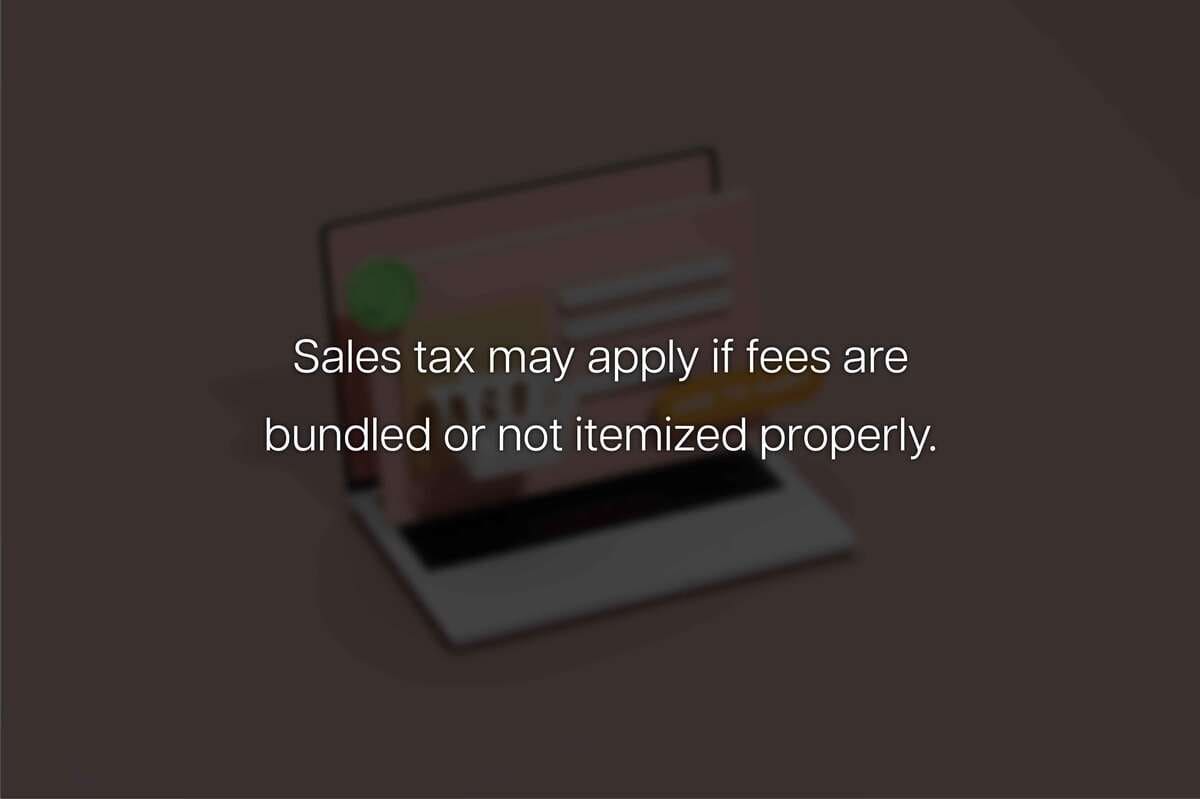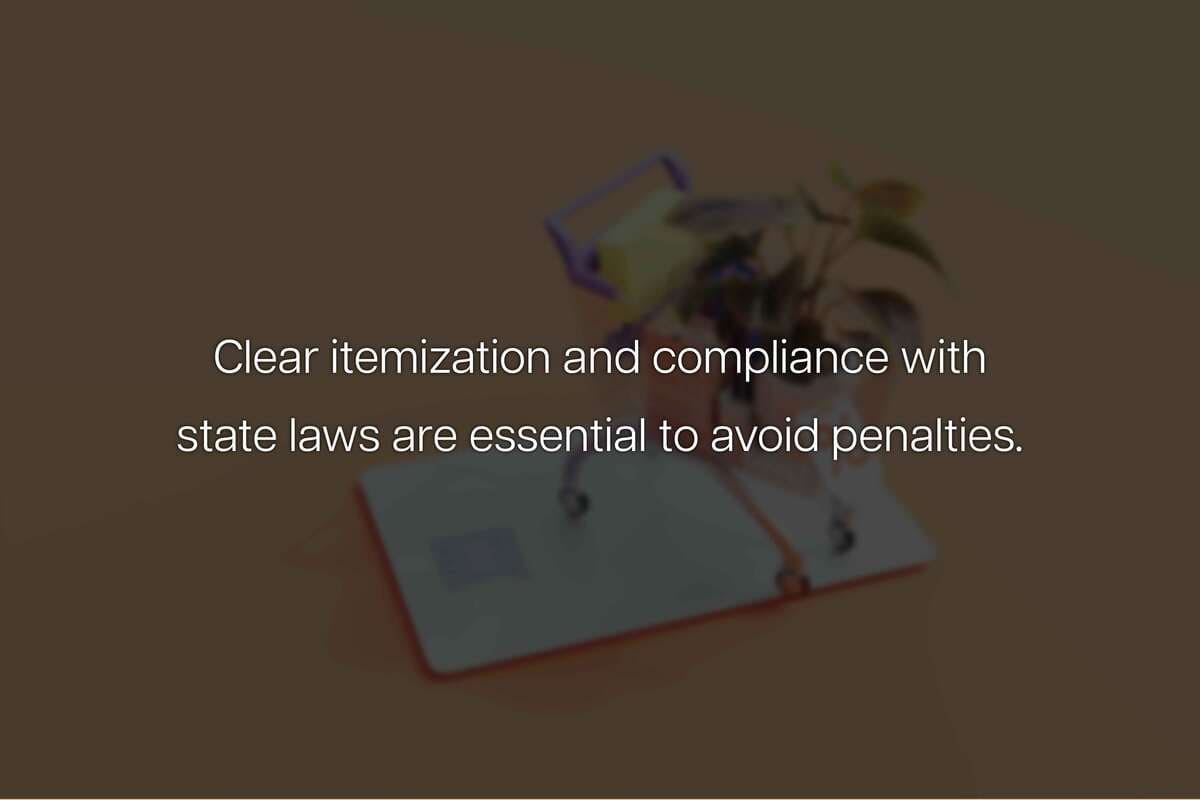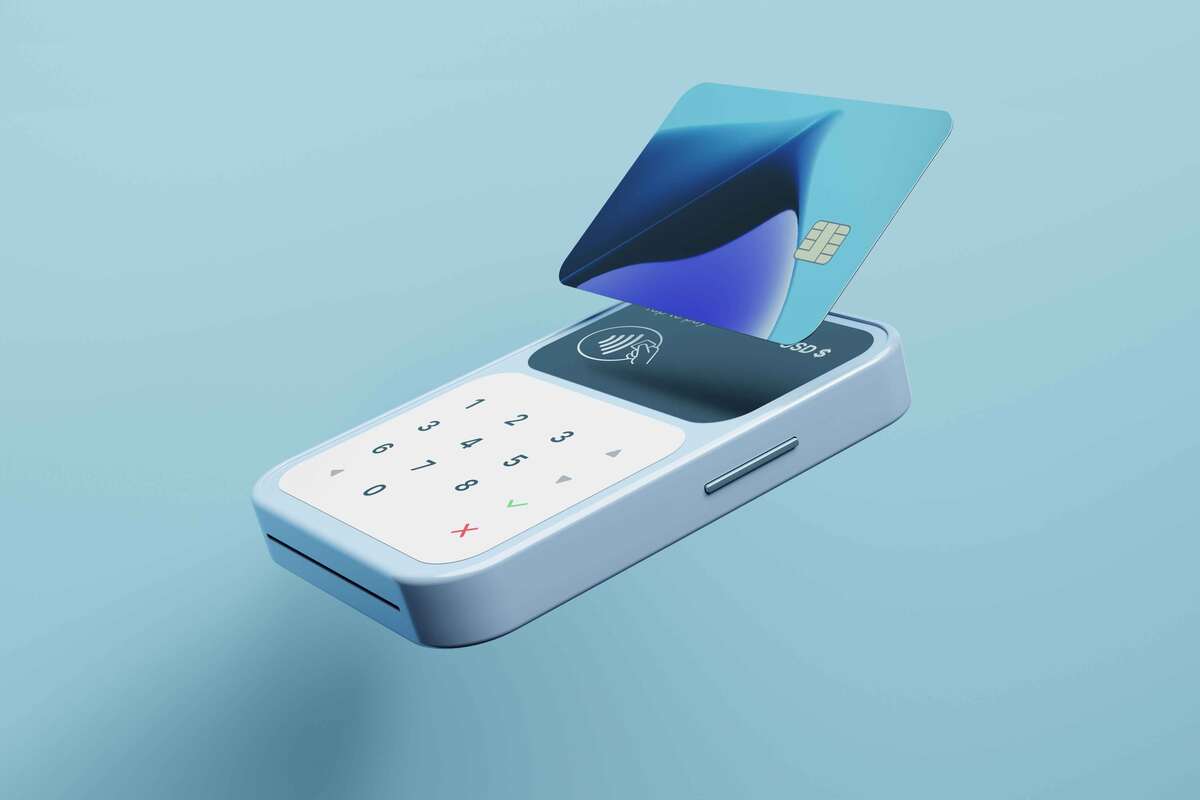Are Credit Card Processing Fees Subject to Sales Tax?
Credit card processing fees are generally not subject to sales tax in most states. However, exceptions and nuances exist depending on how you handle transactions, your business type, and state tax regulations. Understanding when and why sales tax might apply can help you avoid costly penalties and ensure tax compliance.

No hidden fees. Ever.
Real-time accounting
SOC 1 & SOC 2 compliance
Expert human support

Table of Contents
Credit card processing fees are generally not subject to sales tax in most states. However, exceptions and nuances exist depending on how you handle transactions, your business type, and state tax regulations. Understanding when and why sales tax might apply can help you avoid costly penalties and ensure tax compliance.
What Are Credit Card Processing Fees?
Credit card processing fees are the costs merchants incur to accept card payments. These fees typically include:
- Interchange Fees: Paid to the card-issuing bank
- Assessment Fees: Paid to the card network like Visa or Mastercard
- Processor Markup: Charged by the payment processor
These fees are usually a percentage of the transaction plus a fixed amount per sale, such as 2.9% + $0.30.
Is Sales Tax Charged on Processing Fees?
In most cases, credit card processing fees are not subject to sales tax. That’s because these fees are considered a business expense, not part of the taxable goods or services provided to the customer. The transaction fee is paid to your payment processor, not added to the final sale price that’s taxed.
However, some states and situations blur the lines. A handful of states may tax surcharges passed to customers, and others may include transaction fees in the tax base if you don't itemize charges clearly.

How Do State Laws Vary?
Sales tax laws are governed at the state level, and the treatment of credit card fees varies. Here are a few examples:
- California: Generally does not tax credit card processing fees or surcharges passed to the customer.
- Texas: Allows merchants to add surcharges but requires clear disclosure. These surcharges are typically not taxable unless bundled with the product price.
- New York: As of recent regulations, surcharge disclosures must be very explicit, and improper implementation could result in the surcharge being taxed.
- Florida: Does not tax processing fees if they are not included in the sale price of goods or services.
Because each state has unique rules, it’s essential to consult your local Department of Revenue or a tax advisor.
When Can Sales Tax Apply?
Sales tax might apply to credit card processing fees in certain situations:
- Bundled Pricing: If you include the processing fee in the price of the product or service without itemizing it separately, it becomes part of the taxable sale.
- Improper Surcharge Disclosure: If you pass a surcharge to customers but don’t list it as a separate line item, some states may consider it part of the taxable base.
- Digital Products or Services: States that tax digital goods may consider bundled fees taxable depending on how invoices are presented.

What Are Surcharges and Are They Taxed?
A surcharge is an additional fee merchants can add to cover credit card processing costs. These are legal in most states but must follow specific guidelines:
- Disclosed to customers at the point of sale
- Cannot exceed the actual cost of processing (usually capped at 4%)
- Must appear as a separate line item on receipts
Whether surcharges are taxed depends on presentation. If you clearly list the surcharge separately from the price of goods or services, most states won’t tax it. If you don’t separate it out, it may be included in the total taxable sale.
How to Stay Tax Compliant
To avoid unintentionally collecting or failing to remit the right taxes:
- Itemize Fees on Invoices: Clearly separate processing fees or surcharges from taxable items.
- Review Local Laws: Tax codes change often, and local authorities may have specific requirements.
- Avoid Bundled Pricing When Possible: Bundled pricing can unintentionally make nontaxable fees taxable.
- Consult a Tax Professional: Especially if you operate in multiple states or sell digital goods, expert advice is worth the cost.

What About Third-Party Payment Platforms?
If you use platforms like Square, PayPal, or Stripe, they deduct the processing fees before depositing funds into your account. In these cases, the gross sale amount is usually the figure reported for tax purposes—not the net amount after fees. This ensures you're not underreporting revenue.
Example Scenarios
Understanding the taxability of credit card processing fees becomes easier with examples:
- Example 1: You sell a $100 product. The customer pays by credit card, and you’re charged a $3 fee. If you don’t add a surcharge, you still collect $100 and remit sales tax on $100.
- Example 2: You sell the same product for $100 and add a $3 surcharge. If the $3 is listed separately on the receipt, you remit sales tax only on the $100.
- Example 3: You charge $103 total and don’t distinguish the surcharge—some states may require you to pay tax on the entire $103.
Best Practices to Avoid Penalties
Following these guidelines can protect your business from unnecessary scrutiny or fines:
- Disclose surcharges prominently at checkout
- Break down all charges on receipts
- Regularly audit your tax reporting and invoicing formats
- Use accounting software that handles tax segmentation accurately
Summary
Credit card processing fees are generally not taxed—but poor documentation or bundled pricing can change that. By understanding your local tax rules and properly itemizing any additional charges, you can stay compliant and avoid unexpected penalties.
Supercharge your Payments
RevitPay is here to help you scale smarter — from your 1st transaction to your 100,000th.
Previous
Next
Frequently Asked Questions
Recent Articles
A Seamless Start to Smarter Payment Processing
Request an Application
Submit for Approval
Start Processing
Explore More Online Payment Solutions
Everything you need to process payments wherever, whenever.
Seamless & Secure Payment Processing
Payment Methods That Power High Risk Businesses
We offer a wide range of secure, flexible payment methods tailored to the needs of high risk merchants. From credit card processing and mobile payments to ACH, eCheck, and more, our solutions are built to help your business accept payments confidently.
Credit Cards
Fast, familiar, and essential.
Give your customers the convenience of paying by credit card while maintaining the fraud protection and flexibility high risk merchants need.
Mobile Payments
Payments on the go.
Whether in-store or remote, accept transactions via smartphones and tablets, keeping your business agile and responsive.
Bitcoin & Crypto Payments
Stay ahead of the curve.
Expand your payment options to bypass traditional banking barriers and get paid faster—with global reach and fewer limitations.
MOTO Payments
Mail and telephone orders made easy.
Process card-not-present transactions securely with MOTO functionality, ideal for businesses that take payments by phone or through manual orders.
ACH Payments
Lower fees, higher reliability.
Automated Clearing House (ACH) payments are perfect for recurring billing or high-ticket items, offering a secure, bank-to-bank alternative to cards.
eCheck Payments
Modernize check payments.
Accept digital checks with ease, streamlining your processing while reducing risk and delays often associated with traditional paper checks.
Seamless Continuity Billing for Subscription-Based Businesses
Looking to support subscription models? Our Continuity Subscriptions solution offers automated recurring billing, built-in autobill features, and reduced payment churn—perfect for businesses that rely on predictable revenue.

Find the Right Way to Get Paid
Whether you’re running an online store, accepting payments remotely, or operating in a high risk space, RevitPay gives you the tools to process transactions with confidence and ease.
A Seamless Start to Smarter Payment Processing
Request an Application
Submit for Approval
Start Processing
Ready to get started?
Join businesses who are saving thousands each year with RevitPay.





